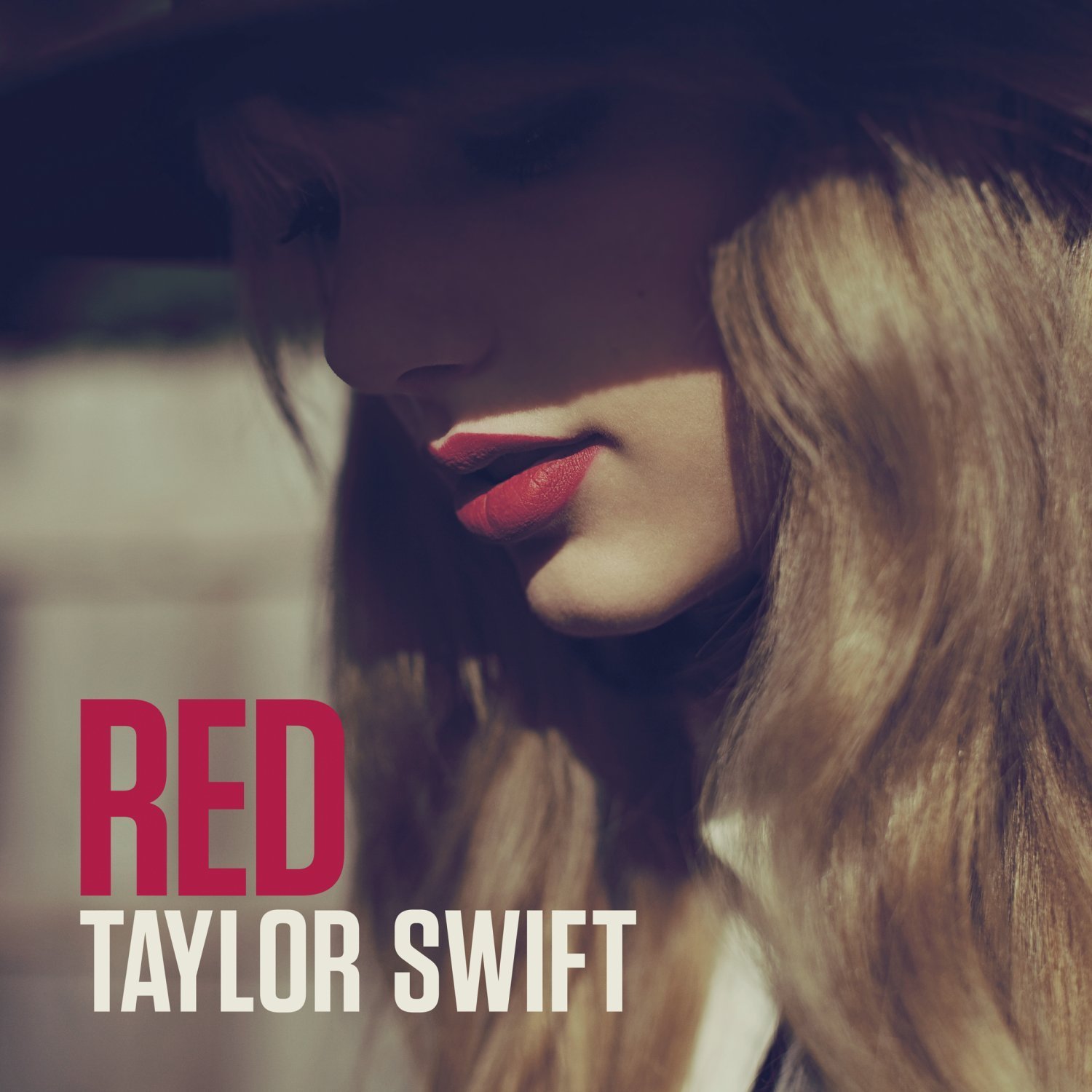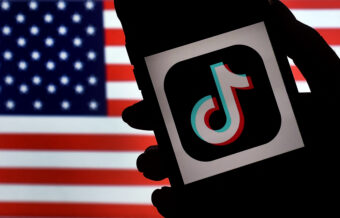Though Taylor Swift‘s decision to put her discography back on Spotify a week ago was—despite her protestations—an obvious attempt at further inflaming Katy Perry, it’s also a good enough reason as any to reexamine her discography. So it is now that I urge you to listen to her fourth album Red.
It’s hard now to think of Swift as something smaller and more humble than the highest, most gleaming lightning rod in a dark thunderous sky, but when Red was released in October 2012 she was mostly just a good ol’ pop star. She was not without controversy, of course (Kanye West’s interruption of her VMA acceptance speech happened in 2009), but still most of it was centered around which of her songs were about which of her famous ex-boyfriends, a scavenger hunt she openly encouraged via clues written into her albums’ liner notes. She was not yet a one-woman factory for conversations about feminism or race or gentrification, whose every move is treated with presidential-level scrutiny.
Red, in many respects, feels like the last pure Taylor Swift album we’ll ever get. It’s not just the last one before her career became consumed by the narratives that grow from it, but also the last one before she completely engineered her music for world domination. Nobody with a stake in the Taylor Swift business—which is a lot of people—would deem her most recent album 1989 to be anything other than a gigantic success, not when counting (the money derived from) three No. 1 singles, 1.2 million copies moved in its first week, and a sold-out worldwide tour. 1989 is still encoded with Swift’s DNA—top-shelf songwriting and her typically biting, often self-referential lyrics—but it presents a homogenized version of a pop star who once stood alone in an industry colored by the creation and pursuit of trends. 1989 pulls broadly from the history of pop music—”Shake It Off” nods at Motown girl groups, while a song like “All You Had to Do Was Stay” is pure Radio Disney—but it’s mostly infatuated, like so much pop of the time, with the ’80s. The country music of her early days was left a molted skin. Her much cooler friends Haim loomed large.
Speak Now—her third album, released in 2010—was similarly imperfect, though in the opposite way. Like 1989, Speak Now is a largely great album that contains several astounding songs. But it situates Swift in a place that feels inert, not expanding on the pop-country of her impeccable sophomore album Fearless as much as just playing it louder. Red, meanwhile, is the perfect midpoint between both records, staying true to her roots as a country traditionalist and singer-songwriter confessionalist, but also charting several exciting, new paths for her music.

Also Read
Choppered and Tuned
The most obvious of those paths was the blatant, even danceable, pop that would bloom into its own album on 1989. Red‘s lead single “We Are Never Ever Getting Back Together”—her first to be produced by Max Martin and his partner Shellback—loudly and clearly announced a new Swift, with a lilting chorus that’s shot into the stratosphere by pulsing keyboards and thunderous drums. (An alternate version sent to country radio, and since scrubbed from the internet, offered a salve to her core fanbase by threading instruments like banjos and mandolins into the mix.) Still, despite being her first No. 1, it’s one of Red‘s more forgettable songs. Much better were “I Knew You Were Trouble.” and “22,” two later singles that were classified at the time as being inspired by the Skrillex-era understanding of the phrase “dubstep.” Listening back now, both just sound like songs where the bass enters prominently in the chorus, and the so-called “drops” are deployed with a purpose instead of simply as gimmicks. On “I Knew You Were Trouble.” the crashing bass echoes the feeling of being plunged to rock bottom, whereas on “22” it does the opposite, signifying the fleeting upward sweep of feeling young and invincible in the face of the oncoming doom of growing up. By contrast, something like “Shake It Off” feels purely kitschy. (“Red,” the title track, is perhaps the album’s best pop song since Swift flirts with Fleetwood Mac, but that’s an altogether different distinction.)
But the pop maneuvering on Red still feels almost like a bonus—experimentation that wasn’t screwed up. The meat of the record is songs that were smaller but more natural outgrowths of her previous albums. “State of Grace” and “Holy Ground” are the kind of stadium rock she explored on Speak Now through the filter of a band like Snow Patrol (whose singer Gary Lightbody contributed a song to the album), but more taut and purposeful. Both of those songs convey a reverence for the emotions brought on by a sudden crush—how you can look back and remember the energy of pumping adrenaline—and they’re thematically perfect musical compositions, unhurried as if to marinate on the moment but also fleetingly epic. Then there’s the actually epic “All Too Well,” which expands the skyscraping scope of her delicious John Mayer diss “Dear John” with a stunningly strong vocal performance, and one of the best lyrics of her career: “And you call me up again just to break me like a promise, so casually cruel in the name of being honest.” The slower, acoustic ballads—”Treacherous” and “Sad Beautiful Tragic”—are expertly constructed in a similar way, delicate, wistful songs about fragile emotions that feel like they might break if you tried to pick them up. (Join me in ignoring the collaborations with Ed Sheeran and Lightbody.)
Perhaps my favorite song, though, feels like one of the most minor. “Begin Again” ends the record in an almost whisper, with Swift singing gently over plucked guitar strings and sighing string accompaniments. Concluding an album about the thrill of being thrust into a relationship and then picking up the pieces after that relationship leaves you broken, Swift narrates the story of a first date—from looking at herself in the mirror at home, to walking into the cafe and having her date pull her chair out for her. It’s a song that contains everything wonderfully divisive about Swift—her normative views on relationships, her insecurities about coolness (“You said you never met one girl who had as many James Taylor records as you / But I do”), her belief that break-ups are almost always the other person’s fault—but is nonetheless funneled into a song that renders relationships in a way that is tangibly human, narrowing in on the small moments that define our interactions.
Despite her love for writing about relationships in the lineage of stories that stretch across centuries—Romeo and Juliet, Prince Charming and his white horse—this her legacy skill as a songwriter, and so there was no better way for her to end her best record. “We walked down the block to my car, and I almost brought him up,” she sings. “But you start to talk about the movies that your family watches every single Christmas / And I want to talk about that / And for the first time, the past is past.” So corny! And yet…




